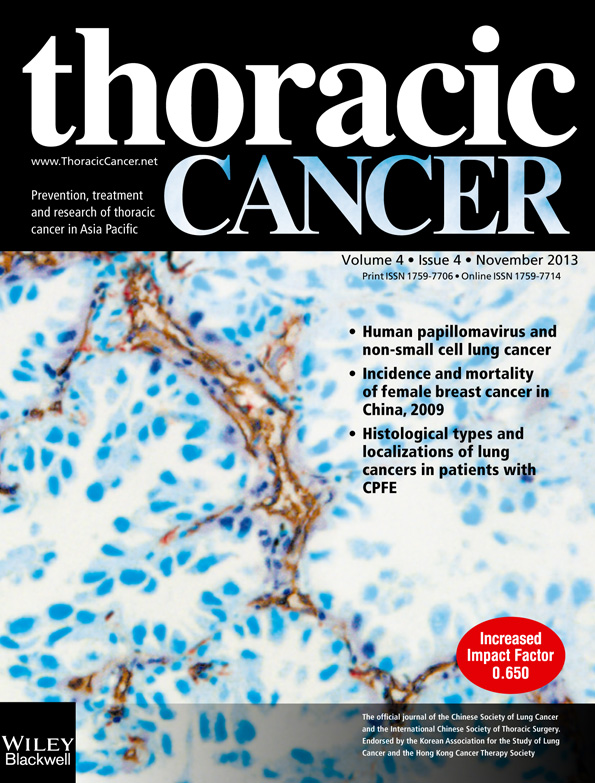Retrospective study of surgical resection in the treatment of limited stage small cell lung cancer
Abstract
Background
Patients with small cell lung cancer (SCLC) are mainly treated by chemotherapy/radiotherapy, either alone or combined. Surgical resection is an optional treatment for few SCLC patients. The efficacy of surgical intervention for SCLC remains controversial. This study evaluates the validity of surgery for patients with limited stage SCLC.
Methods
We conducted a retrospective review of 59 patients with limited stage SCLC who received trimodal therapy from 2004 to 2011. Progression-free survival (PFS) and overall survival (OS) were calculated using the statistic methods of Kaplan-Meier and the log-rank test.
Results
Among the 59 limited stage SCLC patients, 54 patients with stage I–III SCLC received surgical treatment with curative intent, and 42.6% (23/54) patients received preoperative chemotherapy. The radical resection rate of the group of preoperative chemotherapy and the group of initial surgical resection were 82.6% (19/23) and 54.8% (17/31), respectively. The corresponding five-year survival rates were 59% and 22% with significant differences (P = 0.032 and 0.041, respectively). In total, 36 (66.7%) patients underwent radical surgery with resection of the primary mass and mediastinal lymph nodes. In the radical surgery series, five-year survival, according to stage I–III categories, were 59%, 53%, and 26%, respectively. For the 30 stage III patients, the five-year survival of the radical group of 26% was lower than the non-radical group of 67%, and PFS analysis showed similar tendencies.
Conclusion
Preoperative chemotherapy is the most favorable initial treatment for patients with limited disease SCLC. Complete surgical resection is considered for patients with stage I and II. Surgical resection remains of no benefit for stage III SCLC patients with persistent N2/N3 after chemotherapy.




